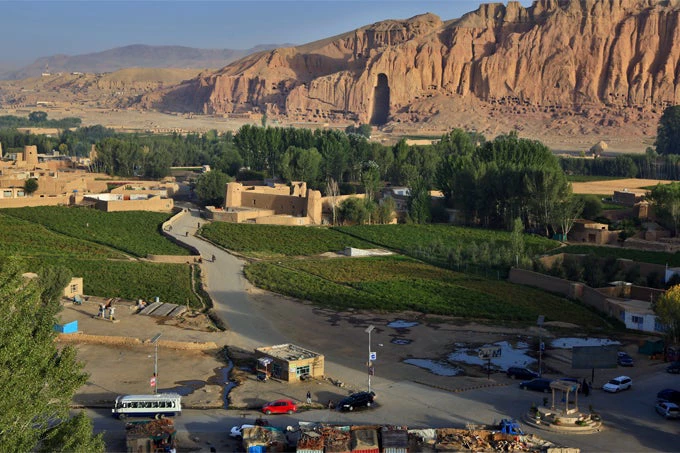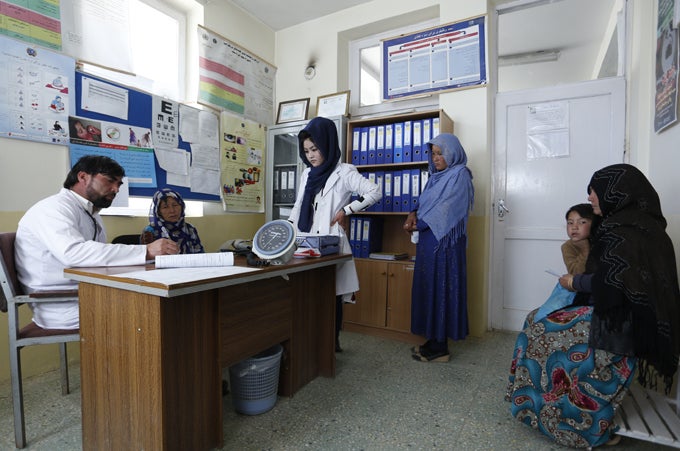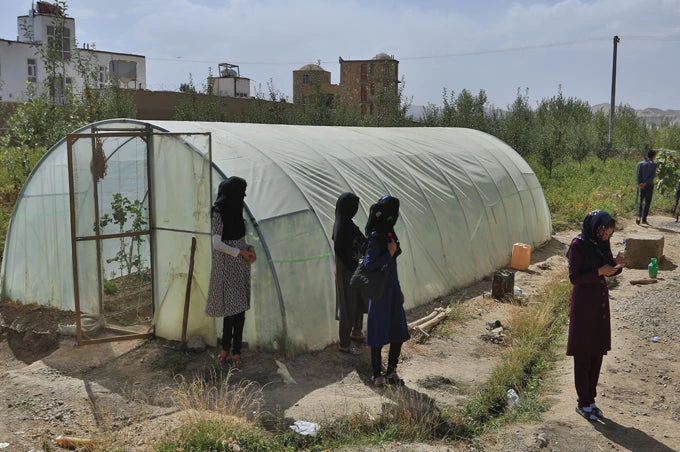
When people think of Afghanistan, what comes to their minds are images of decades of war and insecurity.
True, Afghanistan has suffered a long history of upheaval
But there has been significant progress in rebuilding a strong, independent, and modern nation since 2001.
And in light of our nation’s turbulent history, it is sometimes easy to forget how far Afghanistan has come.
Just two month ago in October, over four million voters cast their ballots in parliamentary elections —with millions more looking forward to voting in the upcoming presidential election in 2019.
Unforgettably, 2018 also brought the unprecedented three-day ceasefire during Eid, a rare glimpse of complete peace that continues to give hope to many of us.
As Governor of Bamyan Province, one of my goals is to present a different image of my country to the world —one of progress and possibility in the face of adversity.
Many people have never heard of Bamyan . Neither do they know its longstanding and well-deserved reputation as one of Afghanistan’ safest provinces.
Our residents take pride in the fact that we haven’t experienced chaos, war, or insurgency against the government in 17 years.
And as Governor, I have witnessed the importance residents put on civil society, which has been vital to implementing successful development projects in the province.

In my three years at my current job, many of the government projects in Bamyan Province have received funding from the Afghanistan Reconstruction Trust Fund (ARTF), which is managed by the World Bank on behalf of 34 donors, as well as the International Development Association (IDA), the World Bank Group’s fund for the poorest countries.
These projects cover crucial areas of development such as agriculture and livestock, education, women’s empowerment, microfinance, infrastructure, healthcare, and more.
Given that 80 percent of Bamyan residents make a living from farming, agriculture-focused projects have contributed to the success of nearly all other development projects .
Case in point: A hospital is only useful if a person can reach it; a school is only beneficial if students can attend it .
So, raising farmers’ incomes and encouraging their self-sufficiency helps boost access to healthcare, schools, and other municipal services as locals can then afford safer transport and buy medicine and other necessities to improve their standards of living.
Projects such as the National Horticulture and Livestock Productivity Project (NHLP), the Afghanistan Agricultural Inputs Project (AAIP), the National Solidarity Program (NSP) and Citizen’s Charter Afghanistan Project have promoted rural facilities and agriculture as a source of income by helping farmers access efficient irrigation and learn and implement modern farming methods.
These projects also provide relevant tools and infrastructure such as micro greenhouses.
I believe these projects also effect change in other areas of society by lifting beneficiaries and their families out of poverty.
For instance, many women involved in the micro greenhouse project are satisfied with the new skills they have learned , saying it “has helped [them] earn an income and find jobs outside of the home.”

These projects will also help boost average household incomes in Bamyan and increase labor market participation rate , which was already higher at about 62 percent than the national average of 55 percent in 2013, according to World Bank estimates.
Others who have benefited financially from better harvests and more diverse crops say that with higher incomes, “[their] children can go to school and we can buy them the clothes, books, and paper to succeed.”
Being able to provide for their children will help improve our provincial net primary school attendance rate even further, which saw an increase of 13 percent from 2007 to 2013, according to the World Bank Provincial Briefs published in 2016.
At the same time, the health of many communities is improving in tandem with improved agricultural practices as residents learn proper nutrition from information distributed by NHLP.
The NHLP Bamyan Outreach Coordinator said that “pregnant women especially are getting better nutrition because reports of night blindness and other deficiency related problems are decreasing rapidly after we began educating our beneficiaries on the benefits of growing a variety of vegetables.”
Thanks to the impact of this work, we are ready to develop new projects with support from the World Bank and ARTF —and encourage our partners to support other projects in our province in the future.
As Governor, I am pleased to see this success reflected in the lives of residents .
And while donors and development organizations have brought positive change and helped reform institutions, this success, however, belongs to Bamyan residents who are committed to moving their communities and Afghanistan forward and remain resolute in their pursuit of a better future.

Join the Conversation